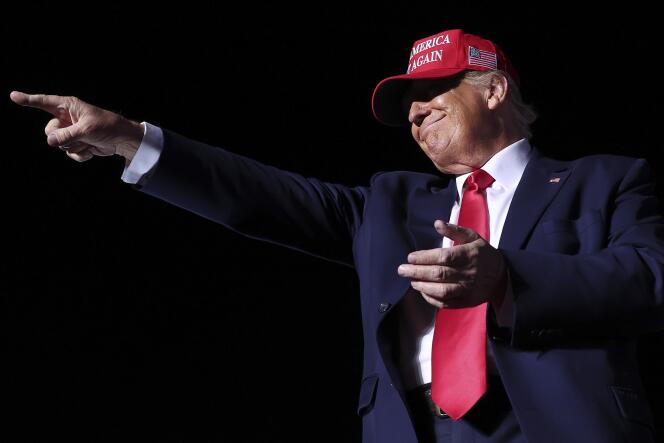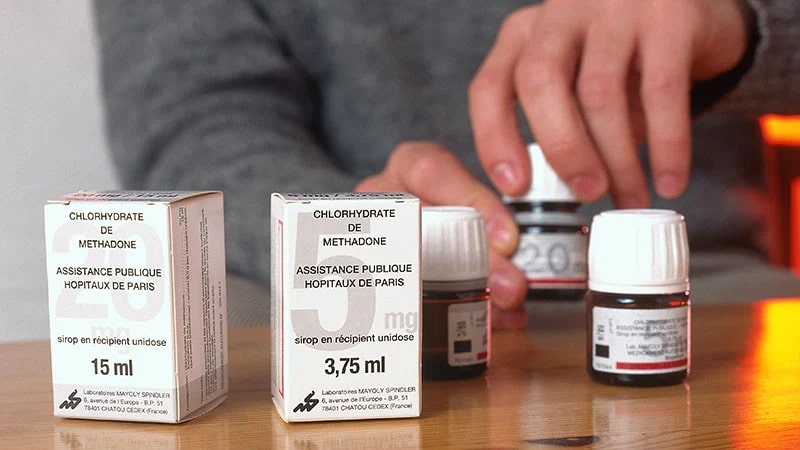|
IN BRIEF
|
More than a decade ago, during his meteoric rise to the presidency of the United States, Donald Trump promised significant reform of the American health care system. While several administrations, including that of Barack Obama, have been marked by drastic reforms such asObamacare, the health plan proposed by Trump remains largely unfinished to this day. This article examines the broken promises, policy setbacks, and public health concerns that continue to hover over the turbulent American political landscape.
Initial promises of reform
From the start of his electoral campaign, Donald Trump put the health system at the heart of his priorities. Through fiery speeches, he promised a plan that would put an end toObamacare, which he considered a disaster. He said this old program was not only ineffective, but it would also harm American citizens by increasing their health care costs.
However, this promise of radical transformation never became reality. Expectations were immense, and voters scrutinized the Trump administration’s every move with hopes of meaningful change. Despite numerous declarations and commitments, the implementation of a viable health plan has so far proven more complex than initially expected.
The failures of Congress
The first significant attempt at health care reform under the Trump administration came in 2017, when Congress was presented with a bill to repeal theObamacare. This process, which Trump ardently supported, has been fraught with obstacles and opposition, including from members of his own party.
The debates within Congress revealed deep divisions within the Republican Party, rendering it incapable of agreeing on a coherent and feasible alternative to theObamacare. Republican leaders attempted to submit several versions of the reform, but each was met with suspicion and failed to gain the support needed to pass.
Lack of clarity on details
One of the main criticisms of Trump’s health plan is its lack of specifics. While theObamacare offered clear guidance on health insurance, Trump’s proposals were often vague and lacking in detail. The lack of a clear vision for how the principles of their plan would be implemented led not only to confusion, but also to a lack of trust among voters.
Speeches but little action
Trump has often tended to favor rhetoric over action. His public statements were based on promises to reduce the cost of care, improve coverage and improve access to health care. However, concrete actions to achieve these goals have been rare.
Critics say this approach has sowed doubt in the minds of Americans. They found themselves caught between broken promises and the reality of a health system that remained at the same stage, except that it seemed to be deteriorating further.
The consequences on public health
The postponement of health reforms through policy failures was not only a disappointment for Donald Trump; it also had direct repercussions on public health. In the absence of a solid alternative plan, the millions of American citizens who depended on theObamacare continue to fear for their access to care.
A vulnerable population
The most vulnerable populations, including low-income people, foster care and the elderly, are often left at the mercy of a system that appears to be collapsing. In 2020, amid the COVID-19 pandemic, these concerns took on unprecedented proportions, highlighting shortcomings in the U.S. healthcare system.
The numbers speak for themselves: millions of Americans have lost health coverage during this time, and many continue to face prohibitive costs for basic medical care. The constant postponement of promising reforms aggravates this situation of vulnerability and underlines the crucial importance of an accessible and affordable health system.
The current struggle for reform
In the absence of a clear plan and strong political direction, expectations for a better future for America’s health care system have become unclear. As Donald Trump and his administration continue to push to repeal theObamacare, the need for comprehensive reform remains evident.
Political repercussions
Trump has long been a master of populist discourse, but his handling of the public health issue could cost him politically. Voter frustration with this situation could well play a decisive role in future elections. Politicians must now take stock of this reality, because the pressure to put public health issues back on the table will only increase.
Each non-action or failure in implementing a health plan will take on alarming proportions and become a source of growing discontent among the electorate. This begs the question: how long will voters tolerate this stagnation?
An uncertain future
Now, after a decade, it is clear that the issue of public health in the United States remains one of the most pressing challenges facing us. As Trump’s promises continue to suffer from failed implementation, the consequences on the lives of American citizens are stark.
Health at the heart of the electoral debate
As the elections approach, the health system is more than ever a continental issue. Voters expect tangible proposals that go beyond empty statements. Politicians must commit to developing a framework that truly meets the needs of a healthcare market in crisis.
The current political turmoil could also prompt the health care debate to focus less on ideological rhetoric and more on pragmatic solutions that address Americans’ daily concerns.
Without moving towards a clear, promising and achievable plan, the dream of reforming the health care system in the United States could well remain a pipe dream. Citizens’ voices must ring loud and clear as leaders take stock of this crucial challenge for the country’s collective future.
A decade after the announcement of his project, the health plan of Donald Trump remains essentially in the state of concept. Despite several attempts at implementation, the promised health reform has encountered numerous obstacles, delaying its completion and sparking strong criticism. At the same time, the former president often spoke of the importance of rephrase the system in place by repealing theObamacare, but without succeeding in proposing a concrete alternative. The American health situation therefore continues to evolve in a persistent vagueness, leaving uncertainties surrounding the future of citizens’ health coverage.













